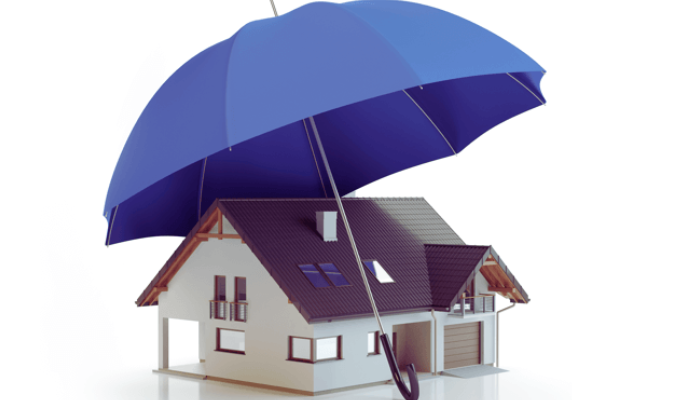Understanding Home Insurance
Your home is likely one of your most significant investments, and protecting it is crucial. Home insurance provides financial protection against a range of unforeseen events, from natural disasters to accidents. Whether you’re a homeowner or a renter, understanding home insurance and its various aspects is essential for safeguarding your property and belongings.
What is Home Insurance?
Home insurance is a contract between the homeowner and the insurance company, in which the insurer provides coverage for losses and damages to the house and its contents, in exchange for regular premium payments. It can also offer liability protection if someone gets injured on your property.
Why Home Insurance is Important
Having home insurance gives homeowners peace of mind. It’s not just about covering your home structure, but also your personal belongings and protection from liability issues. In the event of a fire, burglary, or storm, home insurance can help you recover financially, without dipping too deep into your savings.
Types of Home Insurance Policies
There are different types of home insurance policies that cater to specific needs. Understanding which policy is right for you is vital.
Basic Homeowner’s Insurance Policy (HO-1)
This is the most basic form of home insurance, covering named perils like fire, theft, and vandalism. However, it’s not as commonly available due to its limited scope.
Broad Form Policy (HO-2)
This policy provides broader coverage than HO-1, covering more named perils, such as snow, ice, and falling objects. It’s more comprehensive but still limited to specified events.
Special Form Policy (HO-3)
The most common type of homeowner’s insurance, HO-3, covers a wide range of perils except for those specifically excluded, such as earthquakes and floods. It’s ideal for most homeowners seeking robust coverage.
Contents Broad Form (HO-4 or Renter’s Insurance)
If you’re renting a home or apartment, renter’s insurance (HO-4) covers your personal belongings but not the structure of the building. This type of insurance is crucial for renters who want to protect their possessions.
Comprehensive Form (HO-5)
HO-5 offers the most extensive coverage, providing protection for your home and personal belongings against all perils, except those specifically excluded. This policy is ideal for homeowners with valuable property.
Condo Insurance (HO-6)
Condo owners need specialized coverage that protects the interior of their unit and their personal belongings. Condo insurance (HO-6) also offers liability protection for incidents inside the unit.
What Does Home Insurance Cover?
Home insurance typically covers several key areas, ensuring you’re protected from a variety of situations.
Dwelling Coverage
This covers damage to the structure of your home, including the roof, walls, and foundation. If your home is damaged by fire, lightning, or certain weather conditions, dwelling coverage helps cover repair or rebuild costs.
Personal Property Coverage
Your belongings, from furniture to electronics, are protected under personal property coverage. Whether they’re damaged or stolen, this part of your policy ensures that you can replace them.
Liability Protection
If someone is injured on your property or you accidentally damage someone else’s property, liability protection helps cover legal fees, medical expenses, and any settlements. It’s vital in preventing out-of-pocket expenses in the event of a lawsuit.
Additional Living Expenses (ALE)
If your home becomes uninhabitable due to a covered event, ALE covers the cost of temporary living arrangements, such as hotel stays or rental properties, until your home is repaired.
Factors Affecting Home Insurance Premiums
Several factors determine how much you’ll pay for home insurance. Understanding these can help you make informed decisions and possibly save on your premiums.
Location of the Home
Homes located in areas prone to natural disasters, like floods or hurricanes, often have higher insurance rates. Additionally, living in a high-crime area can also increase premiums.
Home’s Age and Condition
Older homes, especially those with outdated systems like plumbing or wiring, might have higher insurance costs. Upgrades and renovations can sometimes help lower premiums.
Security Features and Safety Systems
Homes equipped with security systems, smoke detectors, and fire alarms can qualify for discounts. The safer your home is, the less risk it poses to insurers.
Coverage Amount and Deductibles
The more coverage you opt for, the higher your premium will be. However, raising your deductible can help reduce your premium since you’ll be paying more out-of-pocket if a claim is made.
How to Save Money on Home Insurance
While home insurance is essential, it doesn’t have to break the bank. Here are some ways to reduce your premiums.
Bundle Your Policies
Many insurers offer discounts if you bundle home insurance with other policies, such as auto insurance. This can lead to significant savings.
Increase Your Deductible
Opting for a higher deductible can lower your monthly premium. However, make sure you choose a deductible you can afford to pay out-of-pocket in the event of a claim.
Home Improvements
Upgrading old systems, adding storm shutters, or installing a new roof can qualify you for discounts. Some insurers even offer lower rates for making your home more energy-efficient.
The Claims Process for Home Insurance
Filing a home insurance claim can seem daunting, especially in the aftermath of an emergency. Here’s a step-by-step guide.
How to File a Claim
- Document the Damage: Take photos or videos of the damage to your home and belongings.
- Contact Your Insurance Company: Call your insurer to report the damage and start the claims process.
- Meet with an Adjuster: Your insurer will send an adjuster to assess the damage and determine the payout.
- Repair and Rebuild: Once approved, use the funds to repair or rebuild your home and replace lost items.
Common Mistakes to Avoid When Filing a Claim
Failing to document the damage or waiting too long to report it are common mistakes. Always act quickly and keep detailed records of everything related to your claim.
Legal Requirements for Home Insurance
While not required by law, home insurance is often necessary, especially if you have a mortgage.
Is Home Insurance Mandatory?
There are no federal or state laws requiring homeowners to carry insurance, but mortgage lenders typically mandate it to protect their investment.
Mortgage Lender Requirements
Most lenders require homeowners to maintain enough insurance to cover the mortgage amount. If you fail to do so, the lender may purchase insurance on your behalf, which is often more expensive.
How to Choose the Right Home Insurance Policy
Selecting the right home insurance involves assessing your needs and comparing options.
Assessing Your Coverage Needs
Consider the value of your home and personal belongings when deciding on coverage amounts. If you live in an area prone to natural disasters, additional coverage for floods or earthquakes may be necessary.
Comparing Different Providers
It’s always wise to get multiple quotes from different insurers. Compare coverage options, customer service, and the financial strength of each provider before making your decision.
Common Myths About Home Insurance
There are many myths surrounding home insurance, such as the belief that it covers every type of damage or that high-end items are automatically covered. Always read your policy carefully to know what is and isn’t covered.
Conclusion
Home insurance is an essential part of protecting your home and personal belongings. Whether you’re a homeowner or renter, understanding your options and ensuring you have the right coverage will give you peace of mind in the event of an unexpected disaster.
FAQs
Does home insurance cover flooding?
No, standard home insurance does not cover flood damage. You’ll need a separate flood insurance policy if you live in a flood-prone area.
How do I determine the right amount of coverage for my home?
Start by assessing the value of your home and personal belongings. You should also consider additional coverage for specific risks, such as natural disasters.
Can I switch home insurance companies mid-policy?
Yes, you can switch insurers at any time, though you may have to pay cancellation fees. Make sure the new policy is active before canceling the old one.
What is the difference between replacement cost and actual cash value?
Replacement cost covers the cost to replace damaged items at current market prices, while actual cash value factors in depreciation, meaning you’ll receive less for older items.
Does home insurance cover mold damage?
It depends on the cause of the mold. If the mold is the result of a covered peril, such as water damage from a burst pipe, it may be covered. However, mold resulting from poor maintenance is typically not covered.



